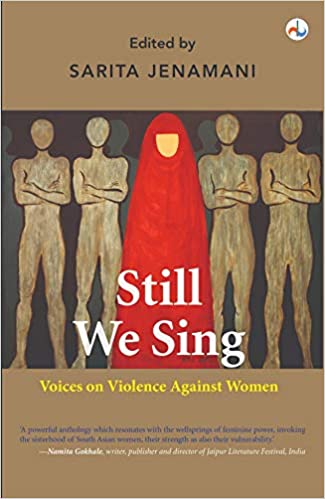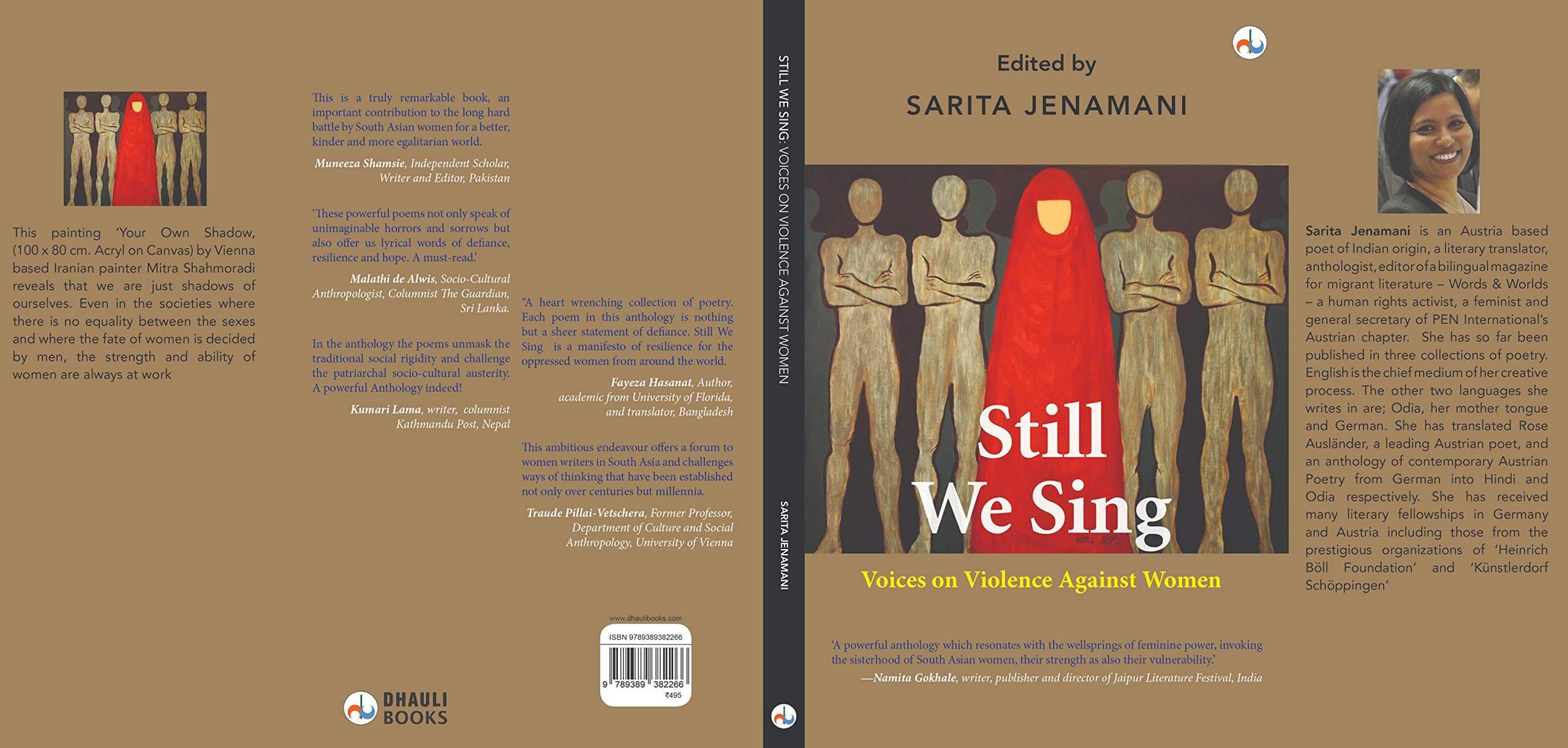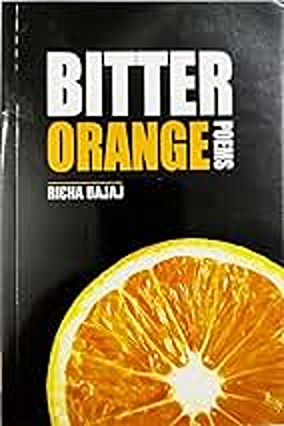Nilini reviews an anthology of poems, Still We Sing, edited by Sarita Jenamani. An exclusive for Different Truths.

Book: Still We Sing
Edited by: Sarita Jenamani
Genre: Poetry
Pages: 268
Rising incidents of violence against women, especially in South Asia or Indian subcontinent, became the subject of protest poetry. An anthology, Still We Sing, Voices on Violence Against Women, was launched, in March 2021. Compiled and edited by Sarita Jenamani, this book is a collection of more than 100 poems from around 70 well established and emerging women poets from India, Pakistan, Nepal, Bangladesh, and Sri-Lanka.
… Sarita makes it clear in her Editor’s Note that “this book is not an anthology of feminist poetry.”
At the very onset, Sarita makes it clear in her Editor’s Note that “this book is not an anthology of feminist poetry.” She asserts that the book is a home to “all women voices rendered silent by the vicious trinity of oppression, denial and victim bashing that has allowed violence against women to escalate to an alarming magnitude.” To incorporate diverse voices, the book contains several translations from Punjabi, Hindi, Urdu, Bangla, Odia, Tamil, Sinhalese, and Nepalese along with poems written in English.
Amrita Pritam’s Poem
It opens with the famous dirge by legendary Punjabi poet, Amrita Pritam, Ajj Aakhaan Waris Shah Nu. It is translated by Dr Aftab Hussain. This stellar collection has been hailed as “a manifesto of resilience for the oppressed women” by Fayeza Hasanat. He is an author, translator from the University of Florida.
Still We Sing offers a bouquet of subtle, suggestive as well as persuasive, dynamic and potent poetry.
Still We Sing offers a bouquet of subtle, suggestive as well as persuasive, dynamic and potent poetry. These are laced with sarcasm and irony. Let me quote one of my favourites in the book:
“Standing on high pulpits / Hissing at men from their minarets of superiority / These women are afflicted with conceit / How dare men think of themselves as equals? / What? Equal to women? /May God forgive them…. /They are not even equal to the shoes adorning the women’s feet. / Their intelligence is stowed in their ankles! / And everyone knows”
– Shameless Women (Ambreen Salahuddin) Translated by Dr Naila Sahar
Wide Array of Issues
The anthology has a fine selection of poems that cover a wide array of issues that beguiles women. From violence that followed partition in 1947 to child marriage, dowry, rape, and abuse within marriage. Anju Makhija, in her poem, ‘Tales of the young bride’, questions a woman married to a man twice her age:
‘Born in nineteen hundred and sixty-eight / in the crowded bustee of Dabirpura / she wed one, born in nineteen hundred and thirty-four / Nineteen hundred and thirty-four? Why him you ask, had she no dowry, no jewellery, no land?’
South Asia is no different than the rest of the world.
South Asia is no different than the rest of the world. Particularly, when it comes to using violence to shame and silence women. They dare not step beyond the defined boundaries set by patriarchy. Any assertion on female independence and female sexuality is seen as a product of western influence and thus un-Indian. Religion, culture, and traditions are still invoked to keep women under the thumb. And throttle their voices. The collective uproar in the form of this poetry collection is the extension of strength and solidarity with women. Their voices are silenced:
“Men use Urdu and Marathi to fight the God/And women can’t even fight the men
Who are not their husbands/Because they know no poetry”
– Rochelle Potkar, In that Land under the Sun

Socio-Cultural Aspect
Asian women are yet to influence the writing of South Asia and its socio-cultural and historical aspect. I have no doubt that this collection is important in filling the lacuna that has always existed in the literary and poetic tradition of the Indian Subcontinent. Nabina Das, a renowned Indian poet writes:
“Girl you have been asked not to sing we know they held a matchstick under your tongue and singed your voice box but girl you will speak up…”
Asian Women
The world tends to perceive Asian women largely as depicted by their male counterparts. Whereas the key to understanding the position of women is through understanding how these women view their options and position. While everyone else seems to have an opinion about what they need and want, it’s high time to take into account what Asian women themselves think about themselves and men in their lives:
“I long for a poem/That will offer you/The enchanted balm of metaphor/Rather than slick polyester cliches/About women beaten /By the men they love “
Each poem is an authentic expression of feelings.
Out of the various forms of feminism ranging from supposedly putting women on a pedestal to those that claim women “are so victimised they are incapable of moral choice,” this book presents women as full and yet flawed human beings. Each poem is an authentic expression of feelings. And experiences shared by women in general. And Asian women are bound to find resonance in the hearts of many.
“…Girls are coming out /of the woods the way birds arrive/at morning windows—pecking /and humming, until all you can hear / is the smash of their miniscule hearts.”
– Girls are coming out of the woods (Tishani Doshi)
A Must Read
Malathi de Alwis, a socio-cultural anthropologist from Sri Lanka calls Still We Sing a must read. She says, “these powerful poems not only speak of unimaginable horrors and sorrows but also offer us lyrical words of defiance and resilience and hope.” It’s steeped in multi-dimensional reality. Wherein each poem reflects a unique perception. This book is a blend of “vividly disobedient verse” and limpid meditations. These demand that we pause often as we read.
Photos sourced by the reviewer





 By
By
 By
By
 By
By
 By
By